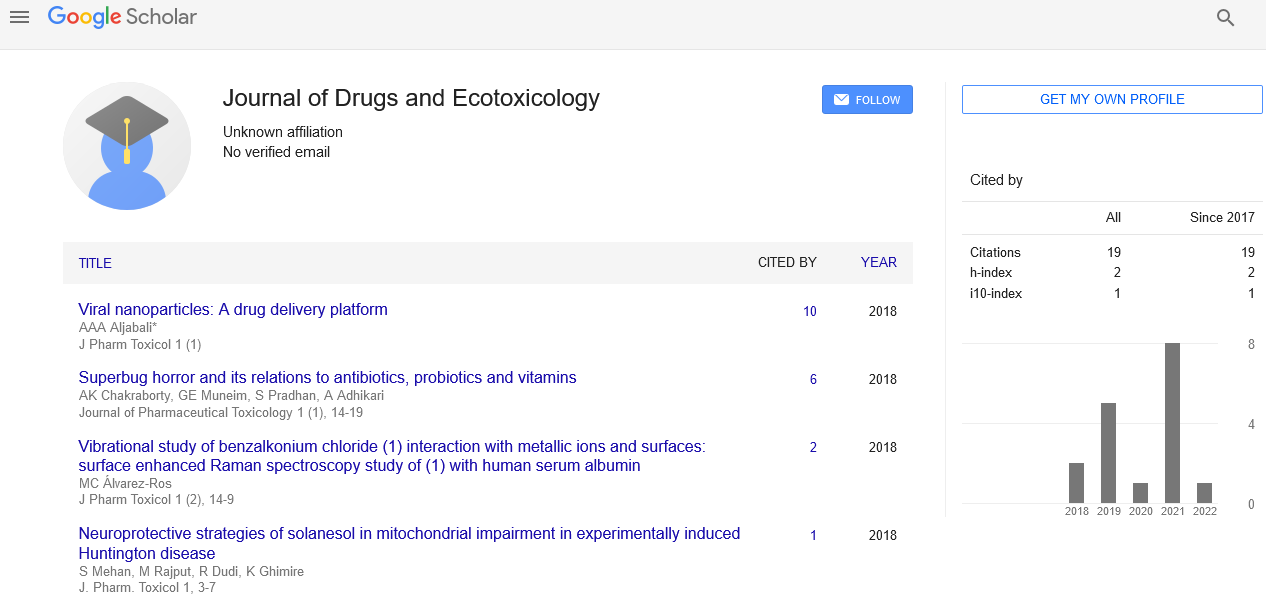
Sign up for email alert when new content gets added: Sign up
Abstract
Saffron by products as sources of bioactive extracts
Author(s): Claudio FerranteSaffron (Crocus sativus L.) has been long described as a protective agent in experimental models of oxidative stress, inflammation and cancer. Multiple studies also revealed the potential application of high quality saffron byproducts as cheap sources of antioxidants. In this context, the aim of the present work was to characterize the phytochemical profile of the whole byproduct fraction, tepal and anther (CTA) water extracts. Additionally, we evaluated CTA effects on reactive oxygen species (ROS) levels and lactate dehydrogenase (LDH) activity on mouse myoblast (C2C12) and human colon cancer (HCT116) cells. The results of the toxicological evaluation indicated that anther extracts were well tolerated by the employed biological models. Particularly, water anther extract did not exert cytostatic, cytotoxic and genotoxic effects in Hs27 cells. Anther extract also revealed to be well tolerated by MCF7 and C2C12 cell lines, in the same concentration range, as showed by the results of viability (MTT) test. Additionally, we tested anther effects on basal and hydrogen peroxide-induced burden of oxidative stress, in both C2C12 and MCF7 cell lines, finding a significant blunting effect induced by the extract on ROS level. Anther extract revealed also effective in blunting LPS-induced levels of pro-oxidant biomarkers such as nitrites and malonildialdehyde (MDA), suggesting protective effects in inflamed tissues. Taken together, the decreased tissue levels of nitrites and MDA induced by anther extracts suggest the valorization of saffron anthers, which are usually discarded, as potential protective agents against the increased burden of oxidative stress in inflammatory conditions phenolic compounds can modulate microbial populations, giving rise to an original field of research relating berries consumption and prevention/treatment of cardiovascular diseases. effect




